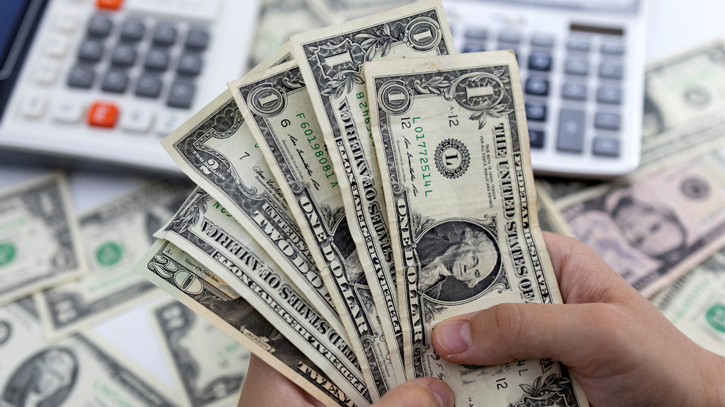
Photo: Collected
Industry owners fear that the overnight dollar price hike by Tk 7 will have an adverse impact on the country's industrial sector. As a result of the taka devaluation, the cost of importing machinery and raw materials for industrial factories will increase, and the import of these products will also decrease. Consequently, new investment will decline, and employment opportunities will stagnate.
In this situation, industry entrepreneurs say that amidst the succession of crises, they may have no other option but to wind up their businesses. Economists warn that economic damage will deepen as the normal pace of trade and commerce is disrupted.
The industrial owners said that the pre-pandemic normal world has not yet returned. After the COVID-19 outbreak, the demand for products in the global market has decreased due to various unrest, including war. This has impacted Bangladesh's export sector, with the most significant impact on the country's main export product, the garment industry.
Entrepreneurs in this sector said that export orders for the garment industry have been declining by 25 to 30 percent for quite some time. This situation has not improved yet. On the contrary, the buyers did not increase the price of clothing despite the rise in production costs, making it difficult for garment owners to run their businesses. In this scenario, the abnormal increase in the dollar price will have a negative impact on the import of machinery and raw materials.
In this regard, Mohiuddin Rubel, Director of the Bangladesh Garment Manufacturers and Exporters Association (BGMEA), told The Daily Messenger, “The production cost of the industry has increased significantly due to various factors, including the increase in workers' wages. However, buyers have not increased the purchase price of clothes; instead, it has decreased. The business is losing money every month. Many garment factories have closed in the past few months due to losses.”
He further said that leaving the interest rate of bank loans to the market and a jump in the dollar price by Tk 7 could increase the cost of doing business. In the country's history, there has never been such a substantial devaluation of the currency in a single day. He thinks that the decision of Bangladesh Bank will exacerbate the crisis in the entire industrial sector, including the garment industry.
Mohammad Hatem, Executive President of BKMEA, told The Daily Messenger, “There has been a long-standing gas shortage in the industry. Still, during the day, the factory has a maximum gas pressure of 2 psi, which makes it impossible to operate the factory. If the pressure increases at night, the factory can be operated. Due to the gas shortage, production is halved. Consequently, many factory owners are now unable to pay their workers, and many owners are forced to close their factories.”
According to the traders, after this action by the central bank, measures should be taken to control the cost of doing business. Because if the cost of business increases, product prices will rise again, risking higher inflation, which will put additional pressure on the common people.
Md Jasimuddin, former president of the Federation of Bangladesh Chambers of Commerce and Industry (FBCCI), told The Daily Messenger, “Due to the increase in the dollar price, the cost of importing energy will increase. There is a risk of an increase in the prices of electricity and fuel. Due to the higher dollar price, more money will be required to import raw materials, which will affect domestic and foreign investment. Additionally, foreign investors will be reluctant to repatriate profits and will suffer because they will now receive less money from the repatriation of profits from Bangladesh.”
Economists and experts said that the garment industry is currently at a crossroads due to the severe geopolitical crisis and the resulting instability in global trade. In such a situation, the central bank's new decision will intensify the crisis in the garment industry, hindering the growth of the industry. Entrepreneurs will be discouraged from setting up new factories.
Economist Dr Ahsan H Mansur told The Daily Messenger, “The country's economy is already in shambles. Various crises surround the economy. Despite this crisis, the private sector is still maintaining some momentum. But the economic wounds will deepen as one crisis after another increases in the industrial sector as well. The government should take necessary steps to maintain the normal pace of the private sector and support entrepreneurs.”
Messenger/Fameema








